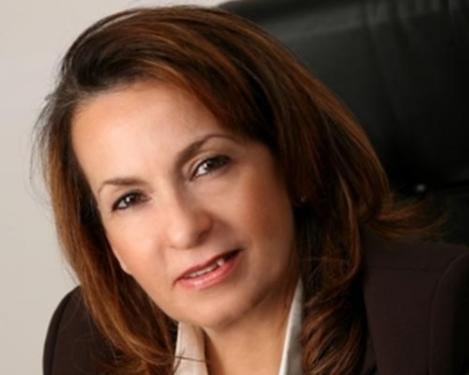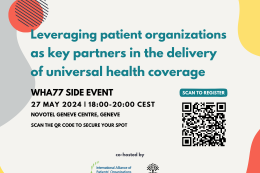Meeting new board members: Androulla Eleftheriou

Why are you personally involved in the work you do?
With a highly scientific background (university degrees in biochemistry, microbiology and virology), and numerous post-graduate diplomas in these fields, I have worked in the public health sector and the Cyprus Ministry of Health for a number of years. I came to work with thalassaemia patients in relation to their viral profile and the transmission of infections through their life-long blood transfusion therapy.
In the course of this, I met with patients and experienced the “journey” of many of them. I have also evidenced the journey of parents losing their children, and this is something that brought me near to this family. In fact, a very dear example to my heart was the loss of the son of Mr Panos Englezos, who is TIF’s President, in 1993. George Englezos was one of my patients when I was the Head of the Virus Reference Centre of the Cyprus Ministry of Health, and he had died due to a severe ear infection, which remained undiagnosed, as there was difficulty in diagnosing between the side-effects of the drugs he was taking and the actual microbial ear infection. This journey, which I was involved in and really marked my life, was the tipping point for me. I decided to become a volunteer for many years in this Federation. In 2006, I received an official proposal to undertake the leadership of the Federation. This was not only an honour, but at the same time a great challenge, which gave me the opportunity to serve these patients on a global basis.
What are some of the challenges facing patients in your region today?
Being a global Federation, the challenges that patients face vary and are heterogeneous both across and within the regions of the world. In Europe, the disease has a higher prevalence among South Asian, North African and Eastern Mediterranean communities. Thus for many years, we have been faced with the challenge of reaching out to such communities due to religious, social and linguistic barriers. Even today, there are still many issues regarding the setting of national prevention programmes, although clinical management has been well achieved in many of the countries.
The situation is totally different in other world regions, and the courses of morbidity and mortality of our patients depend on poor resources, poor health infrastructure and other health priorities.
What’s the best thing about being an IAPO member?
I was very interested in becoming a member of IAPO, and more specifically of IAPO’s Governing Board, so that I can share expertise and knowledge in an umbrella organization across diseases rather than disease specific, so that we can share expertise and knowledge for more patients all over the world. Moreover, IAPO is very focused on important policies (e.g. patient safety) that are shared with all patients across the world, and thus I would be very happy to take part in capacity-building and other projects.
What will you bring to IAPO?
I will bring my expertise and my academic qualifications, as well as my networking skills and contacts in the health care sector, for the benefit of IAPO and its work.
Biography
Read Androulla's biography here.
Related pages
- IAPO Governing Board
- Strategy for 2015-2017
- Thalassaemia International Federation wins prize at WHO World Health Assembly



